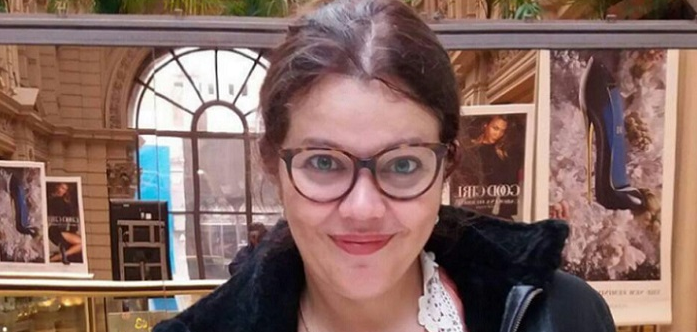"Tourism helps to strengthen family bonds in today's hard world"
Tourism and the family are undergoing far-reaching changes as we move into a new millennium. Destinations seeking to attract family tourism must therefore be very aware of the new types of families and their new requirements.

25-04-2018 | Interviews
Marién André
UB lecturer and expert in family tourism
While in the late 20th century family tourism was typically a couple with two or three children, today there may be a wide range of situations: single-parent families, intergenerational and multigenerational trips (grandparents-parents-children/grandchildren, or even grandparents-grandchildren), trips not necessarily tied to school holidays (traditionally summer or Easter), but weekend short-breaks, again with children/young people plus adults (not always parents, but uncles and aunts, godparents, etc.), among many other possibilities.
This was explained to us by Marién André, University of Barcelona (UB) lecturer in Applied Economics and expert in family tourism Children and teenagers have also become decision-makers about destinations in a hyperconnected world where they wish to show off on social media immediately (so wifi is essential), the wider the range of experiences the better.
In a hyper stimulated society with fairly complex timetables for everyone, tourism is acquiring a new role in the family, over and above just occupying their available "free time". It now does what is called "building up family capital". This means travelling is used to create and strengthen bonds, that is, interacting to encourage interpersonal relations, at the same time as each person satisfies their own needs and priorities, explains this expert.
One example of this is the fact that, while traditionally it has been common to find spaces for children to have fun or activities just for them, where the parents did not take part, today families seek joint and shared activities. Family tourism particularly prioritises all safety aspects: physical, food, health, etc. Another feature is that, not only for budget reasons, but also due to factors connected to their own dynamic, there is a certain tendency to choose accommodation in apartments or similar housing, where the family can more easily manage aspects such as times, meals and sleeping times. In other areas, the tendency coincides with the general trends: increase in number of trips per year, growth of online booking and higher demand for "made-to-measure" products.
Cities were previously seen as hostile spaces for children and young people, but are now considered by families seeking to share a creative and enriching experience for all their members. According to André, Barcelona is receiving family tourism in increasing numbers because it meets all the basic requirements of this segment, such as safety, good location and proximity to source markets. Another important factor is the ideal climate for visits throughout the year (whether in traditional holiday periods or for shorter breaks), a product suitable for their needs, in terms of accommodation and food, as well as infrastructure and basic facilities and, of course, the specific and differentiated product. It would also be beneficial for some cultural facilities to incorporate more policies addressed at this type of visitor and, if possible, improve mobility aspects in connection with the bicycle (means of transport often used by European tourists wishing to move around the city with the family). Vienna (pioneering city in capturing family tourism) and New York (with age-specific tours and well-known cartoon characters acting as ambassadors for child audience) are two good references, although today all tourism capitals have specific campaigns.
André began studying tourism in 1993, just after the Olympic games. She is a member of the Tourism and City of Barcelona Council, and coordinated the Tourism Observatory of Catalonia for five years. She is a resident of Gràcia and in love with Barcelona; she continues to research tourism in cities.







